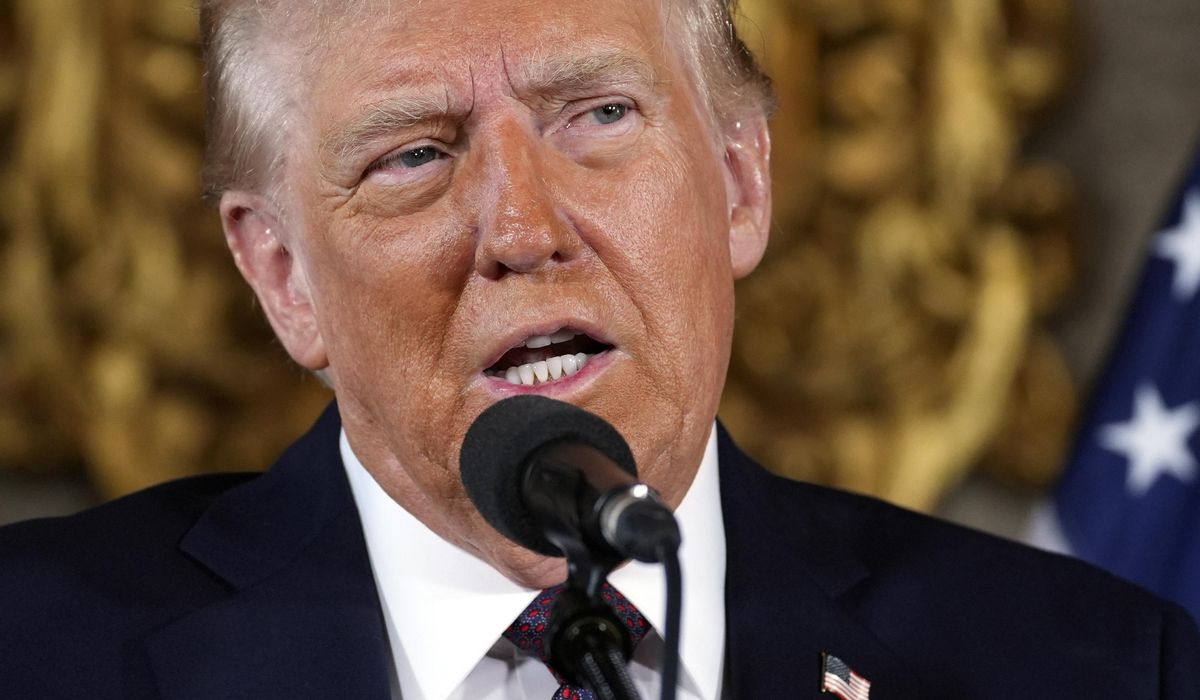


The Gulf of Mexico, by any other name, would be just as wet.
President-elect Donald Trump’s demand that the name be changed to the Gulf of America does nothing to change that fact — but it has sparked a feverish debate over who gets to name geography and when it should be changed.
Mr. Trump says the U.S. has earned the right to mastery of the gulf’s name.
“The Gulf of America. What a beautiful name. And it’s appropriate,” he said.
Mexican President Claudia Sheinbaum has her own idea — that the United States should be renamed “Mexican America” to realign it with a map from 1607.
Experts said Mr. Trump is barreling into a thicket.
“Currently, the Gulf of Mexico signals to students that the United States shares ocean space, resources, and a shared destiny with another country and region,” said Derek Alderman, a professor in the Department of Geography & Sustainability at the University of Tennessee.
“To adopt the Gulf of America prioritizes U.S. nationalism, economic interests and prestige over communicating international interdependence at a time when we want students to be more geopolitically aware and engaged,” he said.
Mr. Alderman said part of the reason renaming is so thorny is there is a long history of geographic places being renamed by political leaders to “exercise power and project a world vision supportive of their ideology.”
“Names for places have long been used as political tools for symbolizing ownership and control over territory,” he said. “At its heart, to name a place is to claim that place.”
Mr. Trump would heartily agree. He and his allies say the U.S. has earned that claim to the gulf because it polices the waters, keeping them safe for everyone, including Mexico.
Mexico does, however, claim slightly more shoreline than the U.S. And it has been part of the name on maps dating back to the 1500s.
Spats over names are nothing new to the political world.
The U.S. has recently emerged from a rash of Black Lives Matter-inspired cleansing of names from the Civil War and segregation, including streets, schools and even nine military bases.
Ironically, some of the same people who pushed those renamings are skeptics of Mr. Trump’s Gulf of America gambit.
In the past, naming disputes have sometimes ended with a compromise.
That’s what happened when Burma renamed itself Myanmar in 1989.
Lovell Johns, a leading mapping company in the U.K., said some nations did not recognize the change by the ruling party, so maps started including both names, with one in parentheses.
“By using a neutral tone like this, all map users are satisfied,” the mapmaker said on its website.
Ukraine in 1995 decided its Capital city should be transliterated as Kyiv, but it took 20 years for that to become widespread and the U.S. Board on Geographic Names didn’t ditch Kiev for Kyiv until 2019.
More recently, the board has declared that Turkiye is the better moniker for the country most people — and spellchecking programs — still know it as Turkey.
Even if Mr. Trump prevails in the gulf, Mr. Alderman said that government officials, news outlets and scientists worldwide would not have to adopt the name change.
Indeed, it could even become a rallying point for Trump resisters.
“It is quite possible, if not expected, that opposing mapmakers, journalists and educators might choose to retain the Gulf of Mexico moniker,” Mr. Alderman said.
That sort of resistance also has a long history.
When Republicans added the name Ronald Reagan to Washington National Airport in 1998, the local Metro transit system refused to change its subway signs and maps — until Congress ordered it to do so in 2001.
Mr. Trump’s gulf battle is also spilling into the halls of Capitol Hill, where Rep. Marjorie Taylor Greene, Georgia Republican, has written legislation to carry out his dream.
“It’s our gulf. The rightful name is the Gulf of America and it’s what the entire world should refer to it as,” she said.
Democratic leaders have mocked the idea as “strange” and “rather random.”
“Donald Trump is in over his head, so he’s doing what he always does in times like this: distract America with crazy ideas,” said Senate Minority Leader Charles E. Schumer, New York Democrat. “Renaming the Gulf of Mexico may be a zany new idea, but it isn’t going to help people save money at the grocery store.”
Mr. Trump could also pursue the change through the Board on Geographic Names.
“There must, however, be a compelling reason to change it,” according to the group’s website. “The BGN is responsible by law for standardizing geographic names throughout the Federal Government and discourages name changes unless there is a compelling reason.”
“Further, changing an existing name merely to correct or re-establish historical usage should not be a primary reason to change a name,” it says.
In addition, the board’s review process mandates that it work with the “appropriate Canadian or Mexican names authorities” when a proposal relates to an international boundary with either country.
If the U.S. renames the Gulf of Mexico, the rest of the world is not obliged to fall in line.
• Seth McLaughlin can be reached at smclaughlin@washingtontimes.com.
